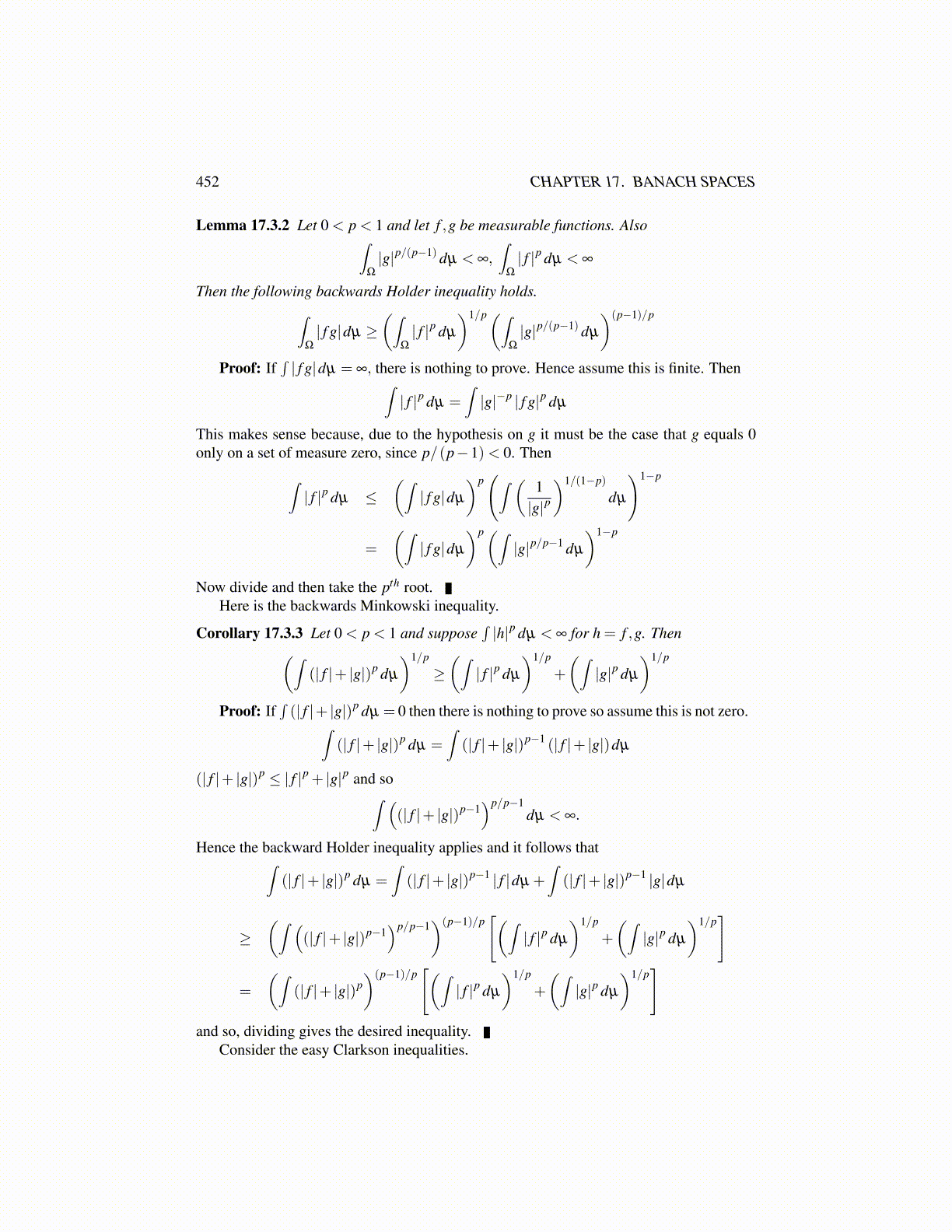
452 CHAPTER 17. BANACH SPACES
Lemma 17.3.2 Let 0 < p < 1 and let f ,g be measurable functions. Also∫Ω
|g|p/(p−1) dµ < ∞,∫
Ω
| f |p dµ < ∞
Then the following backwards Holder inequality holds.∫Ω
| f g|dµ ≥(∫
Ω
| f |p dµ
)1/p(∫Ω
|g|p/(p−1) dµ
)(p−1)/p
Proof: If∫| f g|dµ = ∞, there is nothing to prove. Hence assume this is finite. Then∫
| f |p dµ =∫|g|−p | f g|p dµ
This makes sense because, due to the hypothesis on g it must be the case that g equals 0only on a set of measure zero, since p/(p−1)< 0. Then∫
| f |p dµ ≤(∫| f g|dµ
)p(∫ ( 1
|g|p)1/(1−p)
dµ
)1−p
=
(∫| f g|dµ
)p(∫|g|p/p−1 dµ
)1−p
Now divide and then take the pth root.Here is the backwards Minkowski inequality.
Corollary 17.3.3 Let 0 < p < 1 and suppose∫|h|p dµ < ∞ for h = f ,g. Then(∫
(| f |+ |g|)p dµ
)1/p
≥(∫| f |p dµ
)1/p
+
(∫|g|p dµ
)1/p
Proof: If∫(| f |+ |g|)p dµ = 0 then there is nothing to prove so assume this is not zero.∫
(| f |+ |g|)p dµ =∫
(| f |+ |g|)p−1 (| f |+ |g|)dµ
(| f |+ |g|)p ≤ | f |p + |g|p and so∫ ((| f |+ |g|)p−1
)p/p−1dµ < ∞.
Hence the backward Holder inequality applies and it follows that∫(| f |+ |g|)p dµ =
∫(| f |+ |g|)p−1 | f |dµ +
∫(| f |+ |g|)p−1 |g|dµ
≥(∫ (
(| f |+ |g|)p−1)p/p−1
)(p−1)/p[(∫
| f |p dµ
)1/p
+
(∫|g|p dµ
)1/p]
=
(∫(| f |+ |g|)p
)(p−1)/p[(∫
| f |p dµ
)1/p
+
(∫|g|p dµ
)1/p]
and so, dividing gives the desired inequality.Consider the easy Clarkson inequalities.